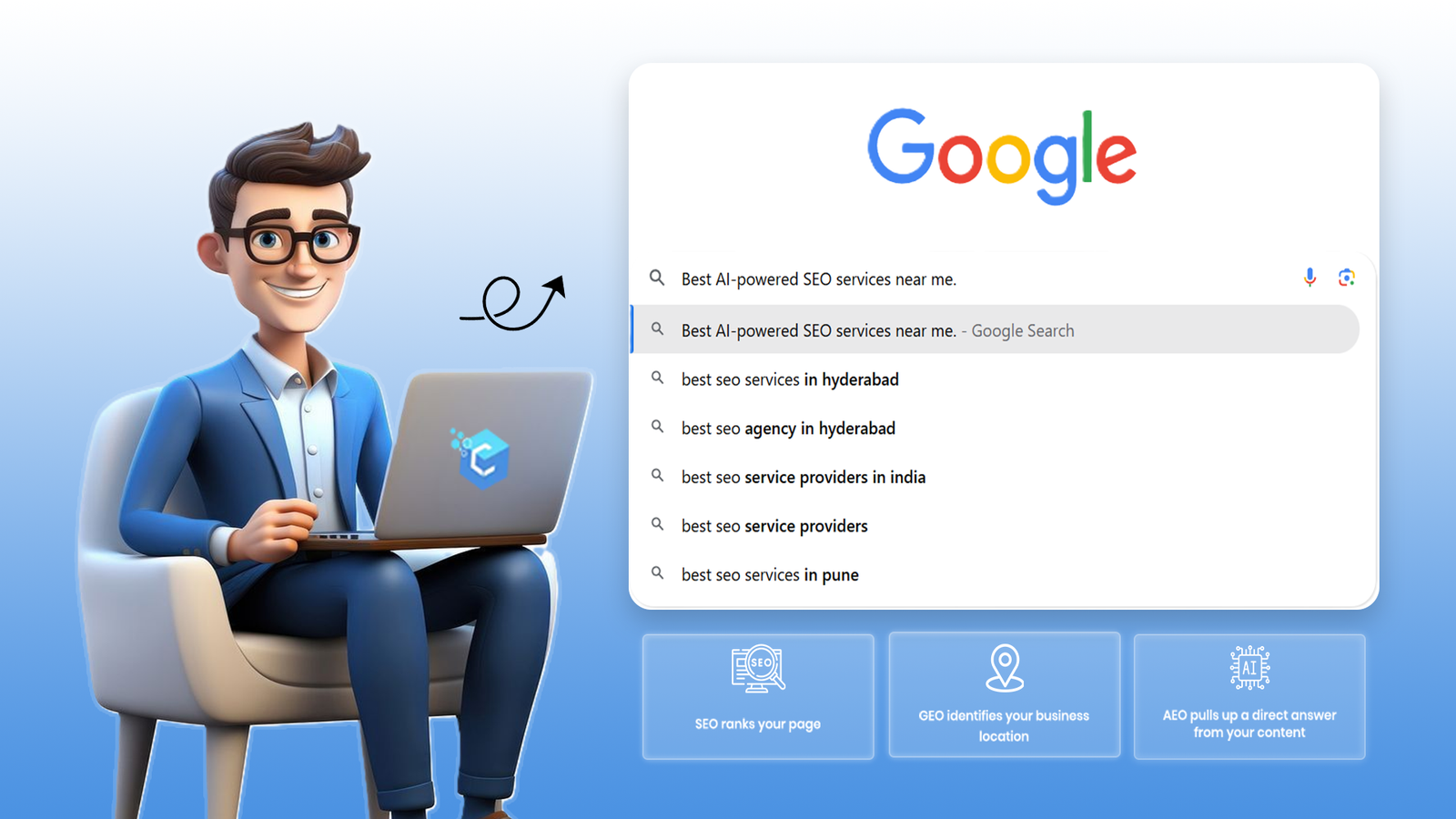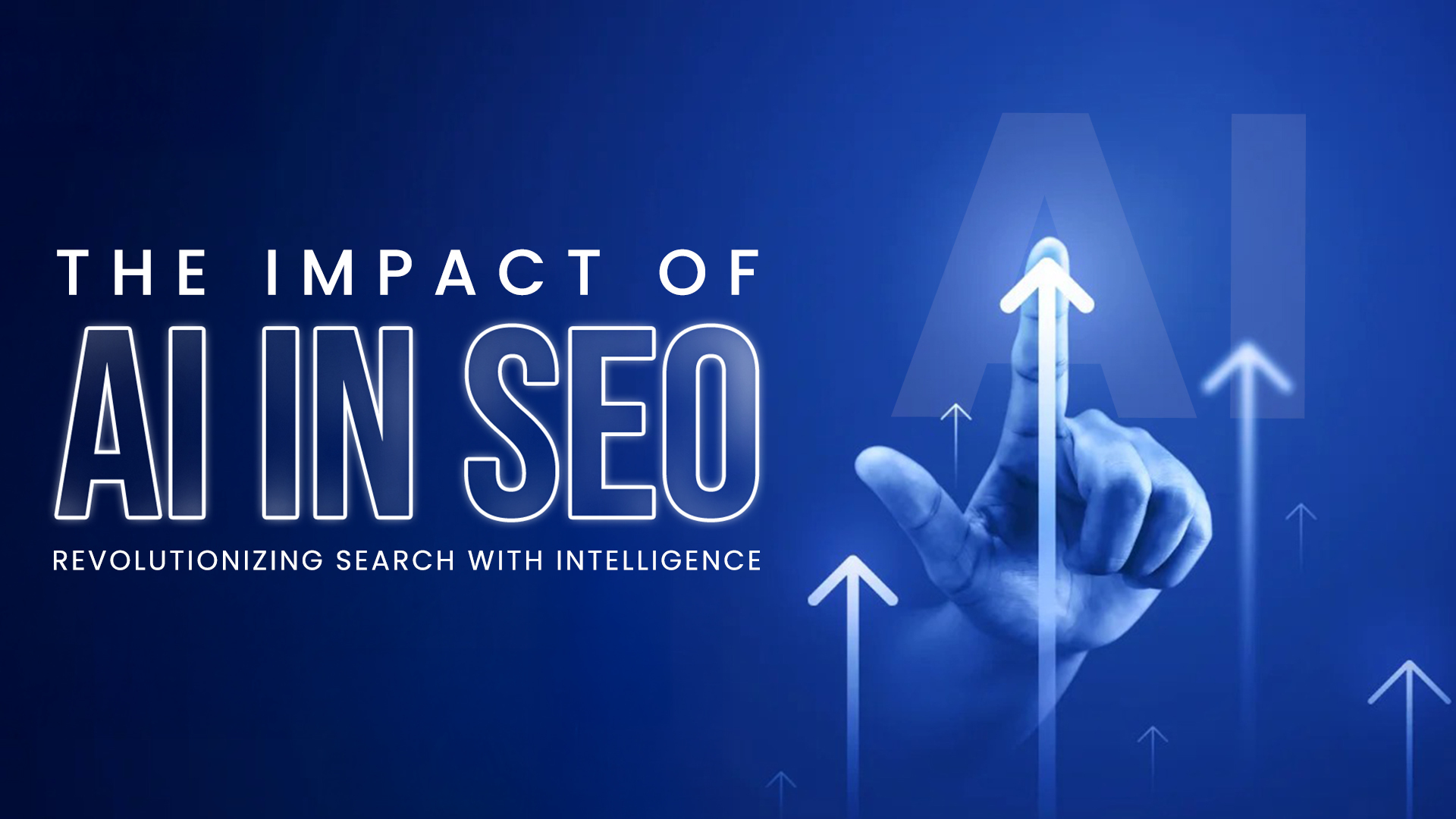- Admin
- July 24th, 2025
- 7 min Read
The Impact of AI in SEO: Revolutionizing Search with Intelligence
In the rapidly evolving digital landscape, Artificial Intelligence (AI) is transforming every facet of online experiences—none more so than Search Engine Optimization (SEO). From content creation to technical performance and hyper-local personalization, AI is reshaping how websites rank, engage, and convert.
This blog explores the far-reaching impact of AI on SEO, Technical SEO, Local SEO, AEO (Answer Engine Optimization), GEO (Geographical Optimization), and Google's evolving AI-driven search models. Whether you're a business owner, marketer, or curious digital strategist, this guide aims to educate and inspire your approach to modern SEO.
1. The Impact of AI in SEO: A Paradigm Shift
AI is not just a tool—it’s the backbone of the future of SEO. Algorithms now prioritize user experience, semantic relevance, and intent over mere keyword density. AI in SEO introduces:
- Smart Algorithms: Google’s RankBrain, BERT, and MUM understand context, meaning, and user intent more precisely than ever.
- Content Intelligence: Tools like ChatGPT, SurferSEO, and MarketMuse help optimize content for search relevance and user engagement.
- Search Behavior Analysis: AI analyzes click patterns, bounce rates, and dwell time to influence rankings dynamically.
Benefits:
- Real-time insights and predictive analytics
- Enhanced keyword strategy and content clustering
- Improved SERP visibility through smarter content matching
Drawbacks:
- Over-automation risks depersonalization
- Requires ongoing adaptation to algorithm updates
2. Technical SEO & AI: Enhancing Infrastructure with Intelligence
AI can automate and elevate Technical SEO practices—ensuring faster websites, clean code, and better crawlability.
Key Aspects:
- Automated Site Audits: AI tools detect broken links, indexing issues, and speed bottlenecks.
- Structured Data Implementation: AI simplifies the generation of schema markup for AEO and featured snippets.
- Log File Analysis: Predict how search bots interact with your site for better crawl budget optimization.
Pros:
- Saves time with real-time fixes
- Improves technical health scores
Cons:
- Dependence on tools can overlook strategic human input
- Some AI-generated fixes may lack context
3. Local SEO & Personalization with AI
AI amplifies Local SEO by delivering hyper-personalized results based on user location, preferences, and real-time behaviors.
How AI Personalizes Local SEO:
- Geo-Fencing: AI detects a user’s location to serve nearby solutions.
- Natural Language Processing: Understands local search intent (e.g., “best cafe near me”).
- Review Sentiment Analysis: AI interprets local reviews to rank local businesses more accurately.
Benefits:
- Boosts visibility for “near me” searches
- Higher engagement with local audiences
- Smarter Google Business Profile optimization
Challenges:
- Data privacy concerns
- Results may vary with search history personalization

4. AEO, GEO, SEO: Understanding the Trio
The traditional SEO landscape is evolving into a three-dimensional strategy involving:
SEO – Search Engine Optimization
Optimizes web pages to rank higher in traditional search engines like Google and Bing.
AEO – Answer Engine Optimization
Focuses on structured data, voice search, and direct answers (think: Google’s Featured Snippets or Siri responses).
GEO – Geographical Optimization
Targets users based on their location, language, or regional preferences, often integrated with Local SEO.
| Element | Focus | Tools | AI Role |
|---|---|---|---|
| SEO | Search visibility | Google Search Console, Ahrefs | Rank analysis, content matching |
| AEO | Voice & direct answers | Schema.org, NLP tools | Intent recognition, featured snippets |
| GEO | Location targeting | Google Maps, GMB | Geo-personalized delivery |
5. Google AI Mode: A New Era of Search
Google is transitioning from keyword-matching to intent-based discovery using AI-first technologies like:
- Search Generative Experience (SGE): Uses generative AI to provide comprehensive, summarized answers.
- MUM (Multitask Unified Model): Understands complex queries across languages and formats (text, video, images).
- Gemini AI: Google’s latest AI assistant, designed to support deeper task resolution and search assistance.
Why It Matters:
- Shift from links to answers: Google wants to solve, not just link.
- Visual and voice-first interfaces: Users will increasingly rely on voice, image, and conversational search.
What It Means for You:
- Optimize for questions, not just keywords.
- Focus on E-E-A-T (Experience, Expertise, Authoritativeness, Trustworthiness).
- Add FAQ sections, schema, and rich content formats.
6. The Magic of Combining SEO, AEO & GEO
When SEO, AEO, and GEO work together, the result is a truly intelligent digital presence. Here’s how:
- SEO brings users to your platform.
- AEO answers their questions immediately.
- GEO ensures they see content that’s contextually and geographically relevant.
Together, they create a harmonized, intent-driven strategy that improves rankings, engagement, and conversions.
Use Case Example:
A user in Delhi searches “best AI-powered SEO services near me.”
- SEO ranks your page.
- GEO identifies your business location.
- AEO pulls up a direct answer from your FAQ-rich schema block.
That’s not just SEO—that’s search intelligence.



